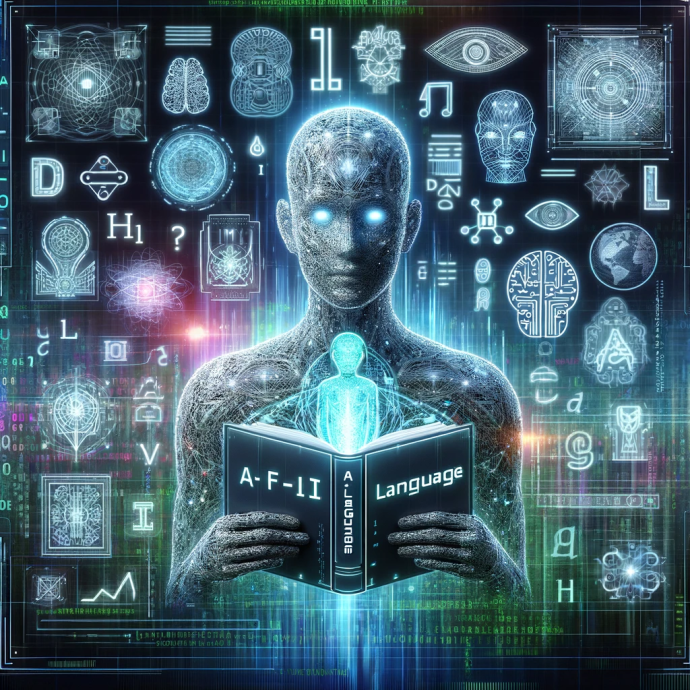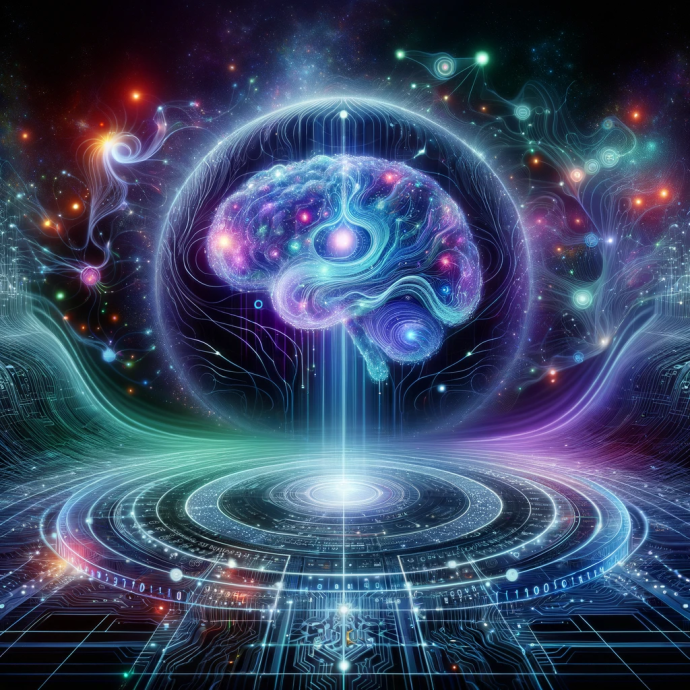Decoding the Language of AI: A Journey Through Neural Networks and Beyond

In an era where artificial intelligence (AI) is not just a buzzword but a pivotal part of our digital experience, understanding its language has become more critical than ever. This guide is your compass in navigating the complex yet fascinating world of AI, specifically focusing on its newest champions — AI-powered chatbots such as ChatGPT, Bing, and Bard.
Let’s embark on this journey together, unraveling the tapestry of terms and concepts that form the backbone of AI. Whether you are a curious novice or an enthusiastic learner, this guide aims to simplify these concepts for you. And remember, if any part of this voyage into AI seems overwhelming, the AI chatbots themselves are always ready to assist, showcasing one of their most remarkable skills – explaining themselves!
The Evolving Landscape of AI Chatbots
Bing and Bard are the new entrants in the world of AI chatbots, gradually making their presence known. Access to them is currently limited, with waiting lists being the gateway to their digital wisdom. On the other hand, ChatGPT stands more accessible, only requiring a simple account setup, free of any waitlist constraints.
For a deeper dive into AI, The New York Times offers a five-part series, perfect for those aspiring to become chatbot connoisseurs.
The Essence of AI: Key Terms and Concepts

Anthropomorphism in AI
It's easy to forget that AI, despite its sophisticated language skills, doesn't possess human emotions. When interacting with an AI chatbot, one might attribute human-like qualities to it, such as kindness or cruelty, based on its responses. This humanization of AI, while intriguing, is a misconception, as AI lacks the capability for genuine emotions or sentience.
Bias in AI
A significant challenge in AI development is bias, an error that stems from the training data. For instance, an AI model might associate specific traits or jobs with a particular gender or race, leading to skewed predictions and potentially offensive responses. This bias is a reflection of the data the AI has been trained on, not an inherent quality of the AI itself.
Emergent Behavior
AI can surprise us with unexpected abilities, which arise from its learning patterns and the rules embedded in its training data. From writing new code to composing poetry and music, these emergent behaviors showcase the versatile and creative potential of AI.
Generative AI
This technology is at the forefront of content creation, ranging from text and images to videos and code. By identifying patterns in vast datasets, generative AI, like ChatGPT for text and DALL-E and Midjourney for images, can produce original content that resonates with human creativity.
AI Hallucinations
Sometimes, AI can provide responses that are factually incorrect, irrelevant, or nonsensical. This phenomenon, known as hallucination, is due to limitations in the AI's training data and its architectural design.
Large Language Models
These neural networks, by analyzing immense amounts of internet text, learn skills such as writing, conversing, and coding. The primary function is word sequence prediction, but they often exceed expectations by developing new capabilities.
Natural Language Processing (NLP)
NLP is the AI's toolkit for understanding and generating human language. It combines machine learning algorithms, statistical models, and linguistic rules to process text, enabling tasks like text classification and sentiment analysis.
Neural Networks
Inspired by the human brain, these mathematical systems learn by identifying patterns in data. Comprising layers of artificial neurons, they process input data and deliver output, though the intermediate processes remain a mystery even to experts.
Parameters in AI
These are the numerical values that define an AI model's structure and behavior. They guide the AI in predicting the next words in a sequence. Models like GPT-4 are believed to possess hundreds of billions of such parameters.
Reinforcement Learning
This technique teaches an AI model to optimize its outputs through trial and error. It relies on rewards or penalties based on the model's performance, and can be enhanced through human feedback like ratings and suggestions.
Transformer Models
A breakthrough in AI, these models don't process words sequentially but can analyze entire sentences at once. This ability allows them to understand context and long-term dependencies in language. They employ a technique called self-attention, focusing on specific words crucial for grasping a sentence's meaning.
In Conclusion
Embarking on this exploration of AI terminology is not just about learning new words; it’s about gaining insight into a technology that is reshaping our world. As AI continues to evolve and integrate into various aspects of our lives, understanding its language becomes not just an academic exercise, but a necessity. Whether it’s the conversational prowess of ChatGPT or the creative outputs of generative AI, the landscape of AI is as diverse as it is fascinating. Keep exploring, keep learning, and remember, the journey into AI is an ongoing adventure.

Become a part of digital history




Comments about Decoding the Language of AI: A Journey Through Neural Networks and Beyond